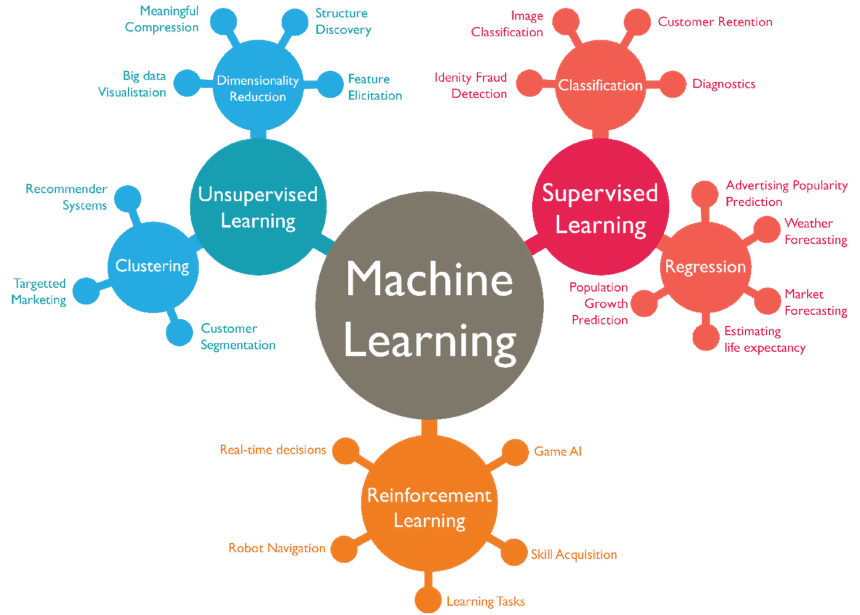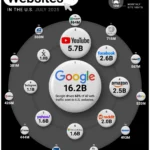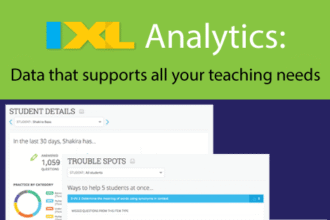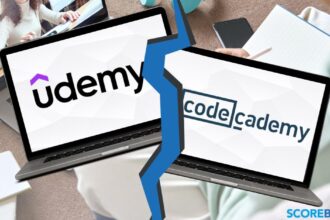Introduction: Why You Can’t Afford to Ignore Machine Learning Anymore
Let’s be brutally honest. The marketing landscape is shifting under our feet. The strategies that worked two years ago are now struggling to break through the noise. In this chaos, a new power has emerged, one that separates the market leaders from the laggards: Machine Learning.
If you’re a marketing professional and the term “machine learning” still sounds like science fiction reserved for Silicon Valley coders, this article is your intervention. This isn’t about becoming a data scientist; it’s about gaining a strategic advantage. Understanding machine learning is no longer a “nice-to-have” skill; it’s the cornerstone of modern, data-driven marketing. And the best part? Gaining this understanding has never been more accessible, thanks to the revolution in online education learning. Whether through free online courses on platforms like Coursera or edX, or specialized online learning programs, the knowledge is at your fingertips.
In this comprehensive guide, we will strip away the complexity. We’ll answer “what is machine learning?” in plain English, explore its mind-blowing applications in marketing, and provide you with a roadmap to start learning this transformative technology today. Consider this your first step in a crucial journey of online learning.
Section 1: Cutting Through the Jargon – What is Machine Learning, Really?
The Simple Analogy: From Following Recipes to Learning to Cook
Imagine you have a junior intern. At first, you give them a strict, step-by-step recipe to create a report: “Take data from column A, combine with data from column B, and format it as a pie chart.” This is traditional programming. You write explicit instructions, and the computer follows them.
Now, imagine a different scenario. Instead of a recipe, you show this intern thousands of pictures of cats and dogs. You point at each one and say, “This is a cat,” or “This is a dog.” After a while, the intern starts to recognize patterns—ears, whiskers, snouts. Soon, they can look at a picture they’ve never seen before and tell you with high accuracy whether it’s a cat or a dog. This is the essence of machine learning.
In technical terms, Machine Learning (ML) is a subset of artificial intelligence (AI) that enables computers to learn and make decisions without being explicitly programmed for every single task. Instead, they use algorithms and statistical models to analyze and draw inferences from patterns in data.
The Trio of Intelligence: AI vs. Machine Learning vs. Deep Learning
These terms are often used interchangeably, but they are not the same. Think of them as a set of Russian nesting dolls.
- Artificial Intelligence (AI): This is the biggest doll. It’s the broadest concept, referring to any technique that enables computers to mimic human intelligence. This could be logic, problem-solving, or even planning.
- Machine Learning: This is the middle doll. It’s the current, most practical application of AI. ML is the method we use to achieve AI. It’s all about giving computers the ability to learn from data.
- Deep Learning: This is the smallest, most specialized doll. It’s a specific, powerful subset of machine learning that uses complex “neural networks” with many layers (hence “deep”) to process data in sophisticated ways, like identifying faces in photos or understanding spoken words.
For marketers, you don’t need to build deep learning models. You need to understand how to leverage ML-powered tools.
Section 2: Machine Learning in Action: Revolutionizing the Marketing Funnel
This is where theory meets the road. Machine learning isn’t happening in a lab; it’s actively powering the tools you use every day. Let’s break down its applications across the customer journey.
1. Personalization on Steroids: Beyond “Hello, [First Name]”
Personalization is no longer about just using someone’s name in an email. ML-driven personalization is dynamic and predictive.
- Netflix and Spotify: These are the classic examples. Their recommendation engines are powered by ML algorithms that analyze your viewing/listening history, compare it to millions of other users, and predict what you’ll want to watch or hear next. For marketers, this translates to product recommendations on e-commerce sites, personalized content feeds on your website, and dynamic email content that changes based on user behavior.
- Real-Time Website Personalization: Tools like Optimizely and Dynamic Yield use ML to show different versions of a website to different visitors. A returning customer might see a “Welcome Back” message with products they browsed, while a new visitor from a social media ad might see a special promotion.
2. Predictive Analytics: Finding Your Most Valuable Customers Before They Buy
What if you could know which leads are most likely to convert? Or which customers are on the verge of churning? ML makes this possible.
- Lead Scoring: Platforms like HubSpot and Marketo use ML to analyze thousands of data points—website visits, email opens, content downloads, social media engagement—to assign a score to each lead. This tells your sales team exactly who to call first.
- Churn Prediction: By analyzing usage patterns and support ticket data, ML models can identify customers who are at high risk of canceling their subscription. This allows you to proactively engage them with special offers or support, saving your revenue.
3. The Content and Advertising Revolution
ML is the brain behind your most effective campaigns.
- Programmatic Advertising: The complex, real-time bidding of digital ads is entirely driven by ML. Algorithms decide in milliseconds which ad to show to which user, on which website, and at what price, maximizing the chance of a conversion.
- Content Optimization: Tools like Clearscope and MarketMuse use natural language processing (a branch of ML) to analyze top-ranking content and suggest topics, keywords, and semantic related terms to help you create more comprehensive and authoritative articles.
- Chatbots and Customer Service: Modern chatbots, like those powered by Dialogflow, have moved beyond simple decision trees. They use ML to understand the intent behind customer questions, providing helpful answers and escalating only the most complex issues to a human agent.
4. SEO and Voice Search
Google’s entire search algorithm, RankBrain, is a massive machine learning system. It helps Google understand the meaning behind search queries, not just the keywords. This is why optimizing for user intent and creating high-quality, topic-cluster content is now more important than keyword stuffing. Furthermore, voice assistants like Siri and Alexa rely heavily on ML for speech recognition and natural language understanding, shaping the future of english learning online and search behavior.
Section 3: Your Competitive Edge: How to Learn Machine Learning as a Marketer
You don’t need a PhD in statistics. You need a solid, conceptual understanding and knowledge of how to apply ML tools. This is where the world of online learning courses becomes your greatest asset.
Why Online Learning is the Perfect Fit for the Modern Professional
The benefits of online learning are particularly pronounced for a field like machine learning.
- Flexibility: You can learn after hours, between meetings, or on the weekend. It fits around your busy schedule.
- Access to World-Class Institutions: You don’t need to quit your job to get a degree from Stanford or MIT. Platforms like Coursera and edX offer their courses online.
- Practical, Hands-On Learning: The best online learning platforms focus on practical skills. You’ll learn by doing, often using real-world datasets and tools.
- Cost-Effectiveness: Compared to traditional degrees, online learning programs are incredibly affordable, with many high-quality free online courses available.
A Curated List of the Best Online Learning Platforms and Courses
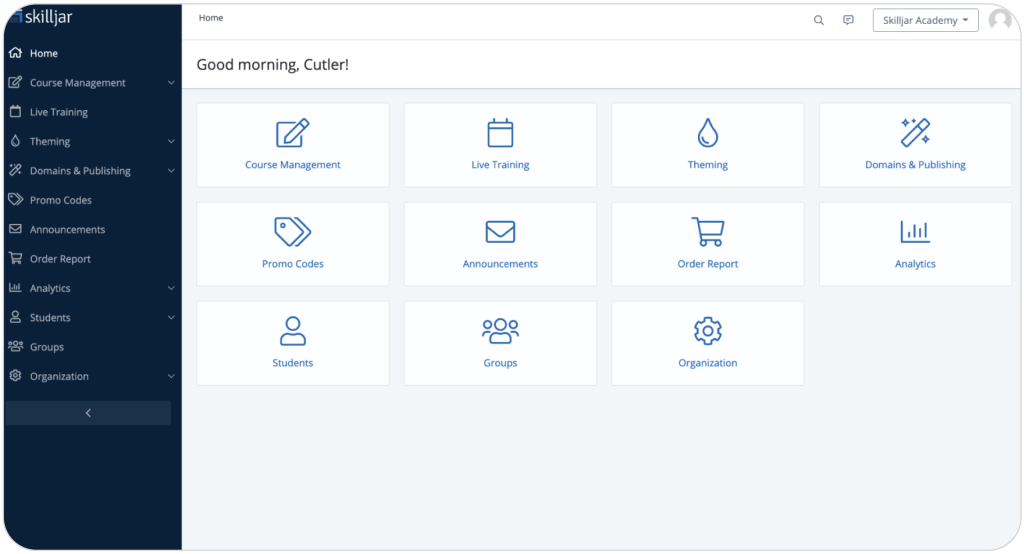
Here is a breakdown of top-tier platforms to launch your machine learning education.
1. Coursera: The University Standard
Coursera partners with top universities like Stanford, University of Michigan, and Imperial College London.
- Recommended Course: “Machine Learning” by Andrew Ng (Stanford). This is the legendary course that introduced millions to ML. It’s slightly technical but provides a foundational understanding.
- For Marketers: “AI For Everyone” by Andrew Ng (DeepLearning.AI). This is a non-technical course perfect for understanding how to manage AI and ML projects in a business context.
2. edX: The Academic Powerhouse
Founded by Harvard and MIT, edX offers a huge range of university-level courses.
- Recommended Course: “Data Science and Machine Learning for Marketing” by the University of California, San Diego. This is a professional certificate program designed specifically for what we’re discussing in this article.
3. LinkedIn Learning: The Professional’s Playground
Integrated directly with your professional profile, LinkedIn Learning offers concise, skill-based courses.
- Search for: “AI Fundamentals for Marketers” or “Marketing with Machine Learning and AI.” These courses are short, focused, and taught by industry practitioners.
4. Udemy: The Skills Marketplace
Udemy has a vast library of courses on every topic imaginable, often at very low prices.
- Look for: Courses with high ratings and recent updates. Search for “Machine Learning for Marketing” or “Python for Data Science.” Learning Python is a great next step if you want to get more hands-on, and there are excellent resources for python learning online.
5. Specialized and Free Platforms
- Kaggle Learn: Offers free, micro-courses on data science and machine learning in a hands-on environment.
- Fast.ai: Provides a top-down approach to practical deep learning, making complex topics more accessible.
- Alison Online Learning: Offers a range of free online courses, including diplomas in data science and machine learning.
Section 4: The Daily Pulse: Live Machine Learning & Online Learning Updates
This section will be updated regularly to reflect the latest trends, news, and data, keeping this article a living resource.
Live Information Snapshot (As of October 2023):
- The Rise of Generative AI: The marketing world is being taken by storm by generative AI tools like ChatGPT, Midjourney, and DALL-E. These are sophisticated ML models that create new content—text, images, video—from simple prompts. Marketers are using them for everything from brainstorming ad copy to creating visual assets. Understanding the ethical and practical implications of these tools is now critical.
- Data Point: A recent report by McKinsey shows that companies that have adopted AI and ML in their marketing and sales functions have seen a 10-15% increase in revenue and a 10-20% improvement in sales lead conversion rates.
- Online Learning Trend: There’s a massive surge in enrollments for AI courses online free and paid, particularly those focused on practical application. Platforms like Coursera report that courses in AI and ML are among their fastest-growing.
- Industry Shift: Privacy changes (like the death of third-party cookies) are making ML-driven first-party data strategies essential. Marketers who can use ML to extract insights from their own customer data will have a significant competitive advantage.
Section 5: Beyond the Hype: The Challenges and Ethical Considerations
While powerful, machine learning is not a magic wand.
- Data Quality: The old adage “garbage in, garbage out” is paramount. An ML model is only as good as the data it’s trained on. Biased or poor-quality data will lead to biased and ineffective outcomes.
- The Black Box Problem: Some complex ML models (especially in deep learning) can be difficult for even their creators to interpret. This lack of transparency can be a risk in regulated industries.
- Ethical Marketing: Using ML for hyper-personalization can cross into creepy territory. Using predictive data for discriminatory pricing (“price optimization”) is both unethical and illegal in many places. Transparency and respect for user privacy must be at the core of any ML-driven strategy.
Conclusion: Your Next Step in a Machine-Driven World
So, what is machine learning? It’s the most significant force shaping the future of marketing. It’s the technology that enables hyper-personalization, predicts customer behavior, and automates complex decisions. Ignoring it is a strategic risk.
But embracing it is an unparalleled opportunity. The path to understanding has been democratized by online learning platforms. Whether you start with a free online course on Alison Online Learning or invest in a professional certificate from Coursera or edX, the power to future-proof your career is in your hands.
The question is no longer if you should learn about machine learning, but when you will start. The market rewards the informed. Don’t get left behind.
Call to Action
Ready to transform your marketing career?
- Bookmark this page and check back for daily live updates on ML trends.
- Explore the online learning platforms mentioned above. Start with a non-technical course like “AI For Everyone” to build your confidence.
- Share this article with a colleague and start a conversation about how your team can begin leveraging machine learning.
Recommended Resources & Source Links:


